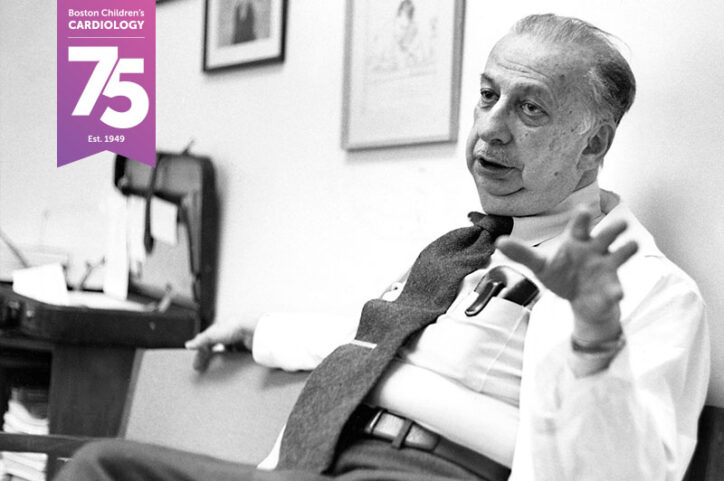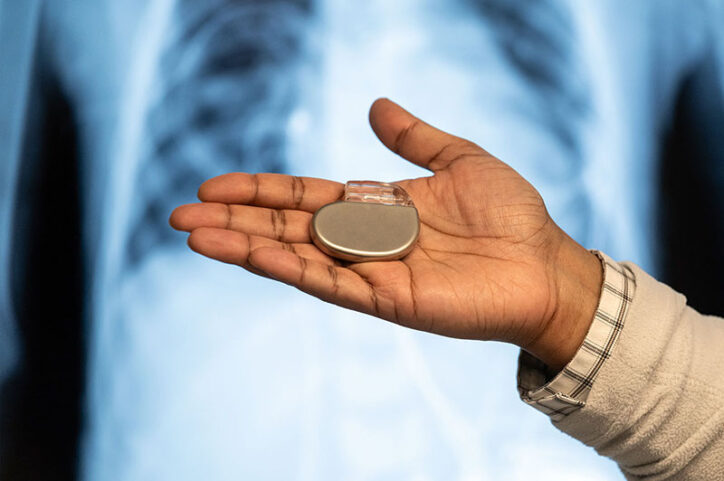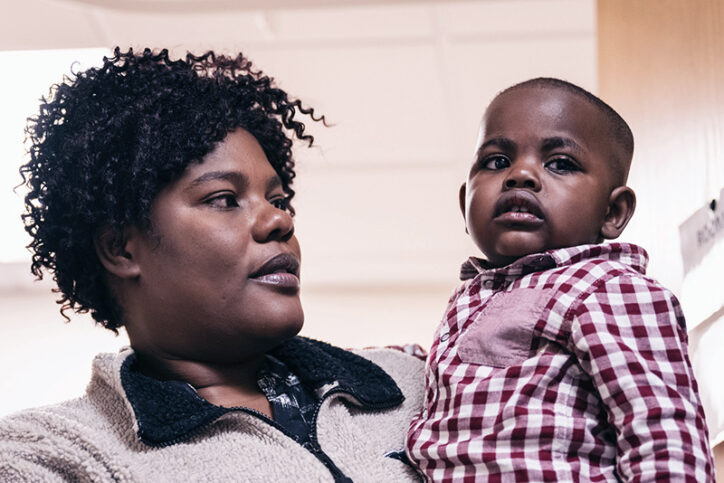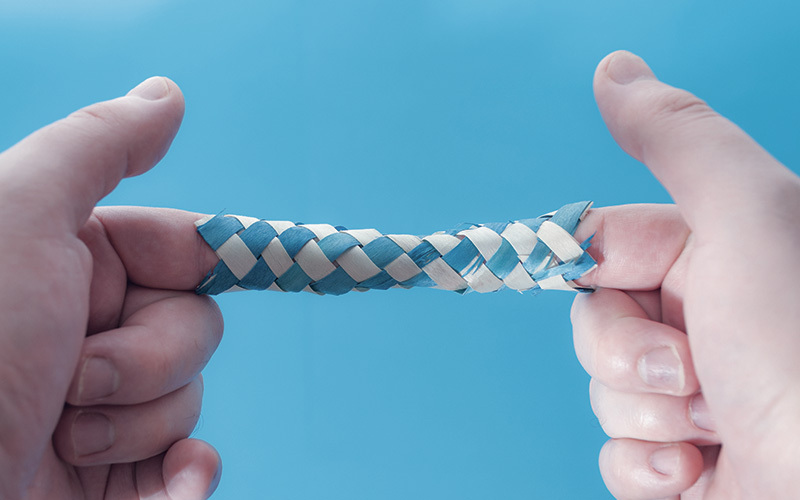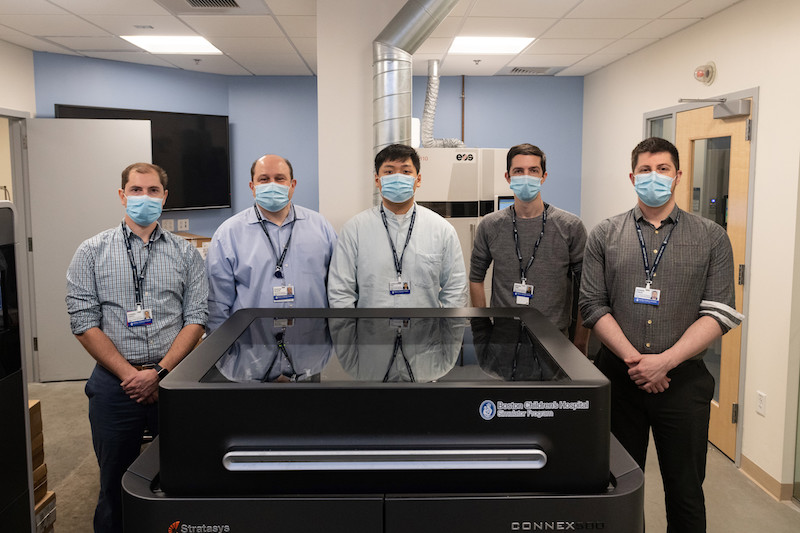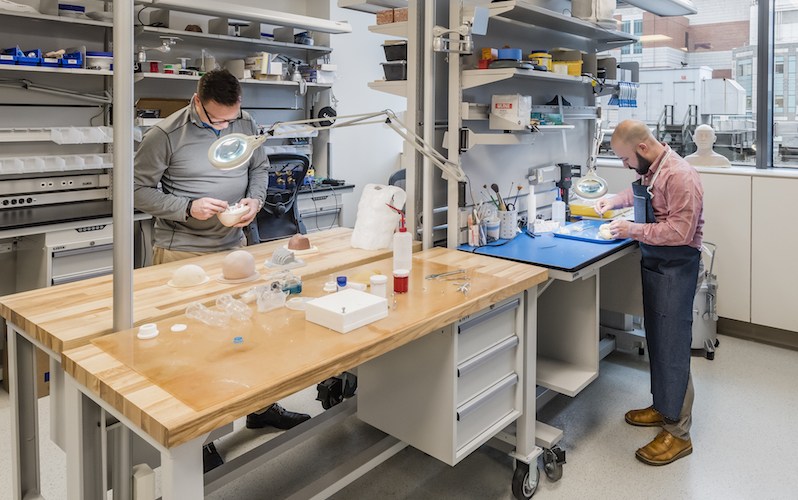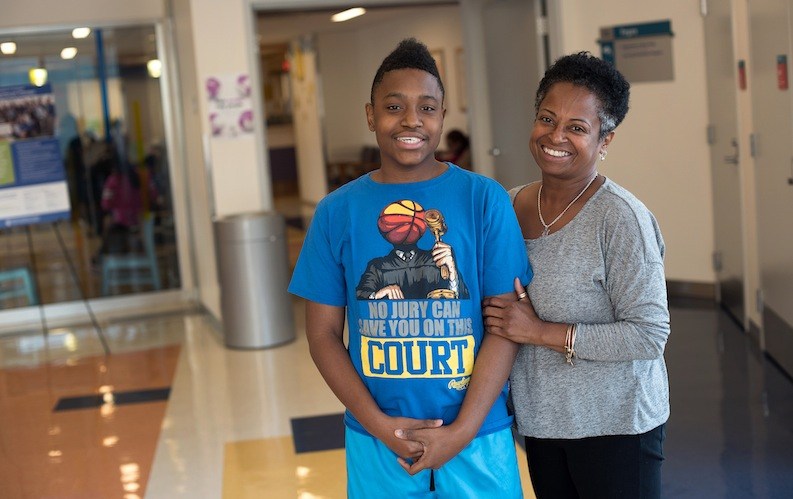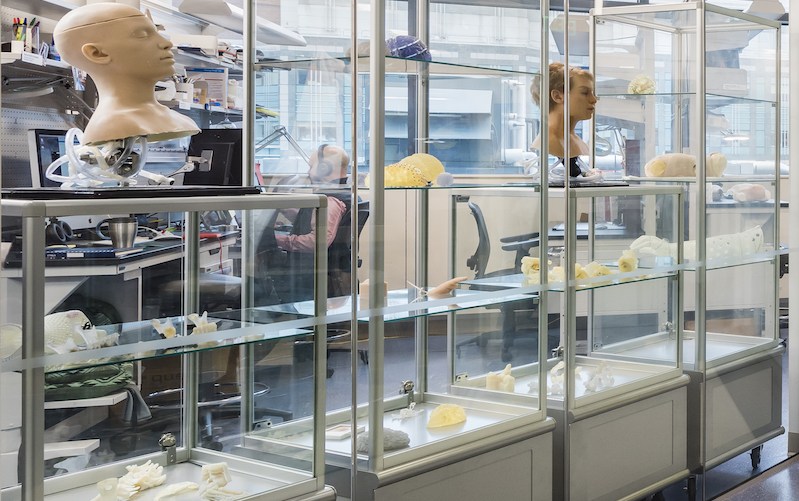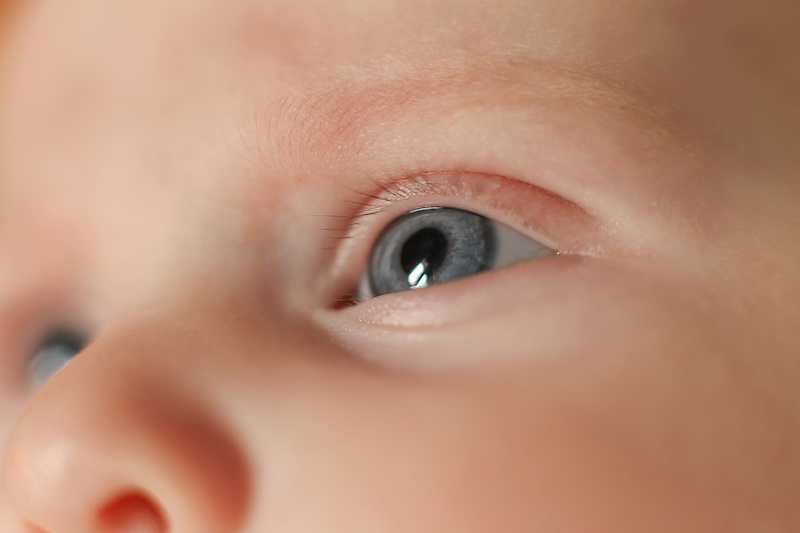Archive for medical devices
The people and advancements behind 75 years of Boston Children’s Cardiology
Boston Children’s Department of Cardiology has more than 100 pediatric and adult cardiologists, over 40 clinical fellows learning the routines of heart care in a major hospital, 12 echocardiogram rooms dedicated to testing the function of a child’s heart, and five labs equipped to perform advanced catheterization procedures. Many other numbers could highlight the dedication that the ... Read More about The people and advancements behind 75 years of Boston Children’s Cardiology
Finding ways to reduce the financial and social costs of pacemakers
As the number of complex heart operations has increased over the years, so have cases of postoperative heart block, a form of arrhythmia that often requires a pacemaker and more surgery. Heart block occurs when unseen conduction tissue — the cells and electrical signals that control the beating of a heart — is injured. It is a ... Read More about Finding ways to reduce the financial and social costs of pacemakers
An off-the-shelf tamponade kit provides surgeons with ‘the luxury of time’ during a life-threatening emergency
It was a late Friday afternoon in April when the call came: A young boy was being transferred to Boston Children’s emergency department after swallowing a button battery. Although his mother had previously taken him to another local hospital when she noticed he wasn’t eating or drinking much, the battery ingestion had been missed until ... Read More about An off-the-shelf tamponade kit provides surgeons with ‘the luxury of time’ during a life-threatening emergency
Tagged: emergency medicine, gastroenterology, medical devices, safety, surgery
Inspired by Chinese finger traps, an annuloplasty ring that grows with the child
This post is part of a series on innovations to treat valvular disease in children. Read our prior posts on transcatheter valve replacement and an expandable prosthetic heart valve. Prosthetic annuloplasty rings have improved the durability of heart valve repairs in adults. Implanted at the perimeter of dilated, leaky valves, they help keep the valve ... Read More about Inspired by Chinese finger traps, an annuloplasty ring that grows with the child
Tagged: cardiac surgery, heart, heart center, medical devices, research, surgery
Boston Children’s Simulator Program steps up during COVID-19
In the early days of the COVID-19 pandemic, hospitals scrambled to adapt and prepare. Amid the chaos, the Boston Children’s Hospital Simulator Program, SIMPeds, sprang into action. SIMPeds is a world leader in running live simulations of care scenarios, allowing health care providers to rehearse tough or unanticipated situations in advance. Its SIMEngineering division is ... Read More about Boston Children’s Simulator Program steps up during COVID-19
Tagged: coronavirus, medical devices, medical training, safety, simpeds
Soft stents, hardened in place by UV light, allow a snug, custom fit
Airway stents are often used when the trachea and bronchi need to be buttressed, as in children and adults with tracheobronchomalacia whose airways become “floppy” and collapse during normal breathing. This condition can occur in conjunction with congenital cardiac anomalies in which the major heart vessels compress the trachea, and with severe, recurrent bronchitis. But ... Read More about Soft stents, hardened in place by UV light, allow a snug, custom fit
GALLERY: Custom-built ‘trainers’ help clinicians master procedures
Walking into the SIMPeds Engineering Studio, a few blocks from Boston Children’s Hospital, the first thing you notice is body parts — high-fidelity replicas of human anatomy in various sizes. Some are in a glass display case, while others are laid out in various states of assembly, from a lone finger to the complete abdominal cavity of ... Read More about GALLERY: Custom-built ‘trainers’ help clinicians master procedures
Tagged: medical devices, medical training, simpeds
Detecting shunt failure in hydrocephalus without imaging or surgery: ShuntCheck
Antonio Venus-Reeve, 14, had his first shunt surgery for hydrocephalus when he was 2½ months old. Born at 25 weeks’ gestation, weighing less than two pounds, he had a serious brain bleed seven days later. As Antonio’s head began to swell with excess fluid, neurologists at Boston Children’s Hospital told his mother, Joanne Venus-Williams, that ... Read More about Detecting shunt failure in hydrocephalus without imaging or surgery: ShuntCheck
Tagged: diagnostics, hydrocephalus, medical devices, neurosurgery, research
Surgical 3-D printing: 300 prints, 16 specialties and counting
3-D printing is rapidly becoming a part of surgical planning. Since July 2013, Boston Children’s Hospital’s 3-D printing service, part of the Simulator Program, has received about 200 requests from 16 departments around the hospital. It’s generated a total of about 300 prints, most of them replicating parts of the body to be operated on. Most ... Read More about Surgical 3-D printing: 300 prints, 16 specialties and counting
Tagged: complex care, medical devices, medical training, simpeds
BabySee: Mobile app lets you see through an infant’s eyes
David Hunter, MD, PhD, chief of Ophthalmology at Boston Children’s Hospital, gets a lot of questions from parents, but the number one question is: “What can my baby see?” That depends. How old is the baby? Five days after birth, she might see something like the image at left; at 3 months, the image at ... Read More about BabySee: Mobile app lets you see through an infant’s eyes


